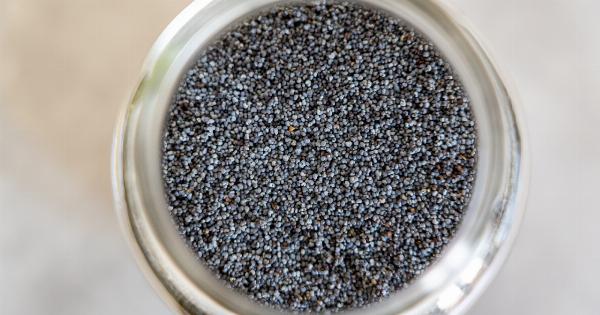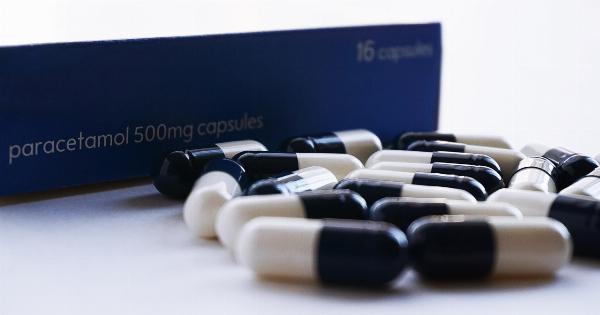Our bodies rely on a variety of vitamins to function properly and maintain good health. These nutrients play essential roles in various bodily processes, including metabolism, immunity, and cell growth.
While a balanced diet rich in fruits, vegetables, and other nutrient-dense foods can provide most of the necessary vitamins, many people still fall short of meeting their recommended daily intake.
The Importance of Vital Vitamins
Vitamins are organic compounds that our bodies require in small amounts for optimal health. Each vitamin has specific functions and benefits, and a deficiency in any of these vital nutrients can lead to various health issues.
Let’s explore some of the most crucial vitamins and why they should be a part of our daily diet.
Vitamin A – The Skin and Eye Protector
Vitamin A is essential for maintaining healthy skin, proper vision, and a strong immune system. It helps in preserving the integrity of our skin and mucous membranes, acting as a barrier against harmful pathogens.
Additionally, Vitamin A promotes good eyesight and plays a crucial role in the visual cycle. Sources of Vitamin A include colorful fruits and vegetables, such as carrots, sweet potatoes, and leafy greens.
Vitamin B Complex – The Energy Boosters
The Vitamin B complex consists of eight different vitamins: B1 (thiamine), B2 (riboflavin), B3 (niacin), B5 (pantothenic acid), B6 (pyridoxine), B7 (biotin), B9 (folate), and B12 (cobalamin).
These vitamins are involved in energy production, nerve function, and DNA synthesis. They are necessary for converting carbohydrates, proteins, and fats into fuel, providing us with the energy needed for everyday activities. Foods rich in B vitamins include whole grains, legumes, lean meats, and green leafy vegetables.
Vitamin C – The Immune Booster
Vitamin C is well-known for its immune-boosting properties. It supports the production of white blood cells, which are crucial for fighting off infections and diseases.
Vitamin C also acts as a powerful antioxidant, protecting the body against damage caused by free radicals. Additionally, it enhances the absorption of iron from plant-based sources, aiding in the prevention of iron deficiency anemia. Citrus fruits, berries, kiwi, and bell peppers are excellent sources of Vitamin C.
Vitamin D – The Sunshine Vitamin
Vitamin D is unique because our bodies can produce it when exposed to sunlight. It plays a crucial role in bone health by promoting the absorption of calcium, which is essential for maintaining strong bones and teeth.
This vitamin also supports the immune system and helps regulate mood. While sunlight is the best source of Vitamin D, it can also be found in fatty fish, fortified dairy products, and egg yolks.
Vitamin E – The Antioxidant Ally
Vitamin E is a potent antioxidant that helps protect our cells from damage caused by harmful free radicals. It also supports immune function and plays a role in maintaining healthy skin and eyes.
Nuts and seeds, vegetable oils, spinach, and broccoli are excellent sources of Vitamin E.
Vitamin K – The Blood Clotting Agent
Vitamin K is crucial for blood clotting. It assists in the formation of blood clots, which play a vital role in stopping bleeding and facilitating wound healing.
Additionally, Vitamin K is involved in bone metabolism and may help reduce the risk of fractures. Leafy greens, such as kale and spinach, are rich sources of Vitamin K.
Vitamin B12 – The Nerve Protector
Vitamin B12 is essential for nerve function and the production of red blood cells. It helps maintain the health of our nerves and plays a role in cognitive function. Vitamin B12 is primarily found in animal products such as meat, fish, eggs, and dairy.
People following a plant-based diet may need to consider B12 supplementation.
Iron – The Oxygen Carrier
Although not a vitamin itself, iron is an essential mineral that plays a crucial role in transporting oxygen throughout the body. Iron is necessary for the formation of red blood cells and the prevention of iron-deficiency anemia.
Good sources of iron include lean meats, poultry, beans, lentils, and fortified cereals.
Calcium – The Bone Builder
Calcium is vital for the development and maintenance of strong bones and teeth. It also plays a crucial role in muscle function, nerve transmission, and hormone secretion.
Dairy products like milk, cheese, and yogurt are excellent sources of calcium, along with leafy greens, tofu, and fortified plant-based milk alternatives.
Zinc – The Immune Supporter
Zinc is an essential mineral that supports immune function and wound healing. It also plays a role in DNA synthesis, cell division, and the sense of taste and smell. Good sources of zinc include oysters, beef, poultry, nuts, and legumes.
Conclusion
Vitamins are vital for our overall health and well-being and are best obtained through a balanced diet.
While it can be challenging to get all the necessary vitamins from food alone, incorporating a variety of nutrient-dense fruits, vegetables, whole grains, lean proteins, and healthy fats into our daily diet can help meet our vitamin needs. However, if you suspect a deficiency or have specific dietary restrictions, it’s important to consult with a healthcare professional or registered dietitian for personalized advice and possible supplementation.
Remember, taking care of our bodies and ensuring adequate vitamin intake is an investment in our long-term health and well-being.





























